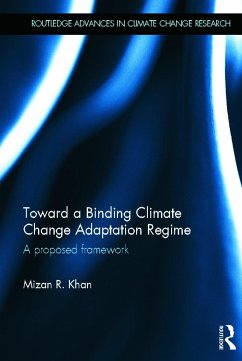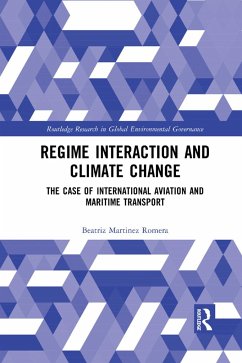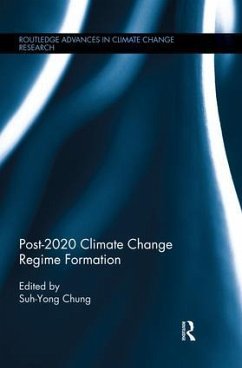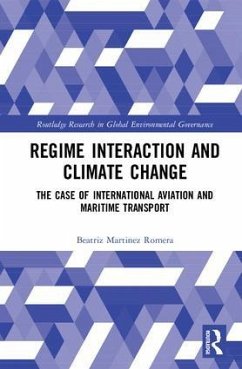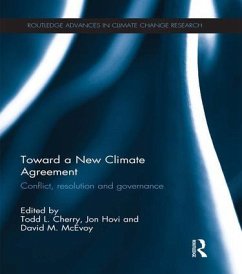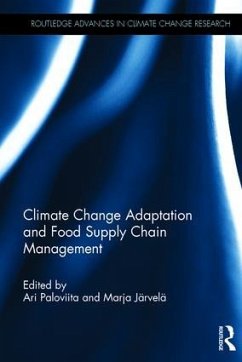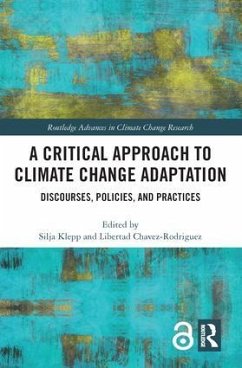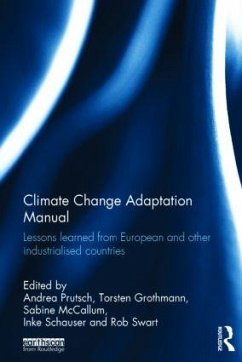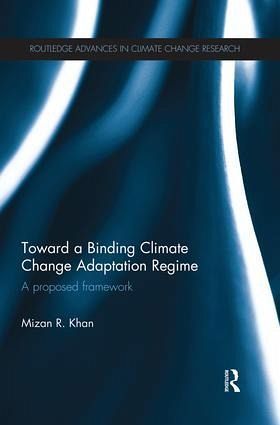
Toward a Binding Climate Change Adaptation Regime
A Proposed Framework
Versandkostenfrei!
Versandfertig in 1-2 Wochen
58,99 €
inkl. MwSt.
Weitere Ausgaben:

PAYBACK Punkte
29 °P sammeln!
The impact of climate change is global both in its cause and its effect. Thus there is a global responsibility for international cooperation to tackle the causes through mitigation strategies such as those agreed at the Durban Platform of December 2011. This climate regime aims to define responsibilities, mechanisms, funding and compliance in order to achieve a clear objective regarding the reduction of greenhouse gas emissions. Although tackling the causes of climate change through mitigation is necessary, it is also essential to examine the effect of climate change and what international coo...
The impact of climate change is global both in its cause and its effect. Thus there is a global responsibility for international cooperation to tackle the causes through mitigation strategies such as those agreed at the Durban Platform of December 2011. This climate regime aims to define responsibilities, mechanisms, funding and compliance in order to achieve a clear objective regarding the reduction of greenhouse gas emissions. Although tackling the causes of climate change through mitigation is necessary, it is also essential to examine the effect of climate change and what international cooperation can take place to ensure global adaptation measures. This pioneering book deals exclusively with the politics of why adaptation as a global responsibility continues to be ignored. Scientific consensus is that the impacts of climate change are increasing, as evident from the greater frequency, intensity and magnitude of climate disasters in recent years. This book asks why anticipatory and planned measures for reducing vulnerability to the impacts of climate change should not be regarded as a global responsibility in the same way as mitigation. This discrimination is likely to continue unless the framing and legal basis of adaptation can be strengthened. It is with this aim in place that Professor Khan utilises his experience in academia and as a negotiator to analyse the politics surrounding this important issue. In this book the author sets out a framework for establishing a legally-binding adaptation regime under the United Nations Framework Convention on Climate Change, with the view to reducing the gap between the strategic focus on mitigation and adaptation. This is invaluable research for students researching climate change from a variety of disciplinary perspectives, including the politics, law and economics of the issue.





